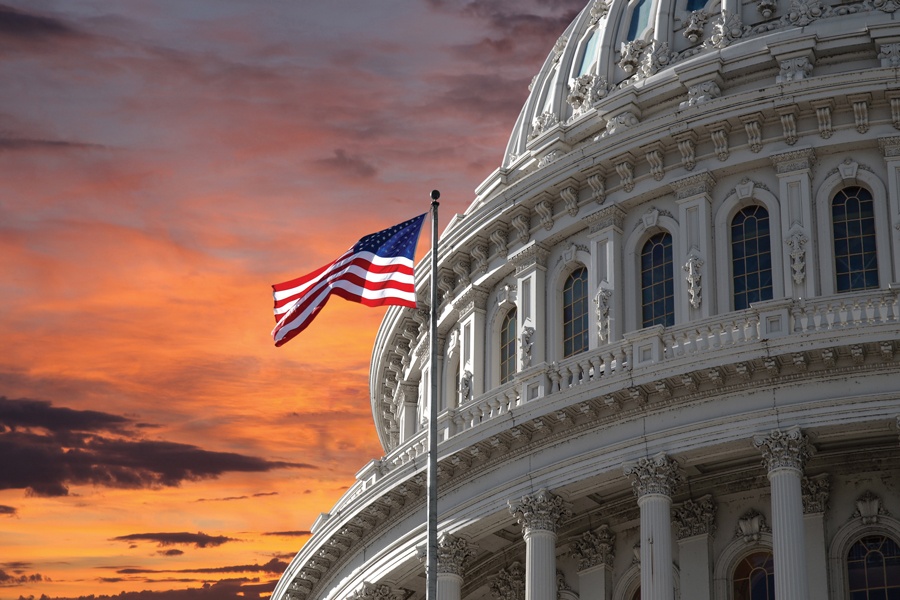

Bipartisan momentum for comprehensive retirement savings legislation continued Wednesday as another Senate committee unanimously approved its version of such a measure.
The Senate Finance Committee advanced the Enhancing American Retirement Now Act to the Senate floor on a voice vote. It likely will be combined with another retirement measure that was unanimously approved last week by the Senate Health Education Labor and Pensions Committee, the Rise & Shine Act.
The Senate bill would be the counterpart to legislation, known as SECURE 2.0, that the House passed in March with overwhelming bipartisan support. Lawmakers hope to enact a final bill by the end of the year, which is the conclusion of the congressional session. If they fail to pass retirement savings legislation, all the bills will die and have to be reintroduced in the next Congress next year.
Bipartisan comity dominated the Senate Finance Committee meeting Wednesday.
Committee chairman Ron Wyden, D-Ore., who touted the EARN Act for helping middle-income workers save for retirement, said the legislation “includes more than 70 proposals aimed at helping more Americans save — the culmination of months of collaboration between just about every member of the committee, Democrat and Republican.”
Sen. Mike Crapo, R-Idaho, and the panel’s ranking Republican, cited a litany of retirement savings bills written by Republicans and Democrats that were included in the expansive final package.
“These are just a few examples of the broad range of ideas incorporated into the bill we are considering today, and it is a testament to the power of bipartisanship,” Crapo said. “When we work together, we can create impactful and lasting work.”
Key provisions of the bill include raising the required minimum distribution age from 72 to 75, increasing catch-up contributions for people between 60 and 63, allowing employers to match student-loan payments with retirement plan contributions, enabling workers to withdraw emergency funds from plans, establishing 403(b) multiple-employer plans, allowing workers to take retirement plan distributions to pay for long-term-care insurance and implementing 401(k) starter plans.
To keep all the committee members on board with the bill, most of the amendments that had been offered fell by the wayside. One reason is that lawmakers didn’t want to add to the cost of the bill.
The expense of expanding retirement coverage and boosting individual savings is financed with revenue- raising provisions, such as requiring catch-up contributions to made with after-tax Roth individual retirement accounts.
“This bill is fully paid for,” Wyden said.
Much work remains to be done before final retirement savings legislation emerges. More provisions could be included in a final measure as the House and Senate cobble together final legislation.
That provides an opportunity or trade associations, such as the Insured Retirement Institute, to continue to advocate for their favored measures. The IRI, which represents the annuities sector, is pushing for the inclusion of a bill that would allow the products to serve as qualified default investment alternatives in workplace retirement plans.
“IRI looks forward to working with the House and Senate to finalize a comprehensive bill that will put individuals on a path toward a secure and dignified retirement,” IRI CEO Wayne Chopus said in a statement. “We will advocate to expand the reach and impact of the final legislation to ensure there are more opportunities to offer protected lifetime income through workplace retirement plans.”
One of the leading lawmakers on retirement savings policy is confident Congress can approve a final bill.
“You were able to get all members of the committee engaged in the process,” Sen. Ben Cardin, D-Md., said to Wyden regarding the EARN Act. “As a result, we have a stronger bill and a much better chance for this bill to get to the finish line.”

Relationships are key to our business but advisors are often slow to engage in specific activities designed to foster them.

Whichever path you go down, act now while you're still in control.

Pro-bitcoin professionals, however, say the cryptocurrency has ushered in change.

“LPL has evolved significantly over the last decade and still wants to scale up,” says one industry executive.

Survey findings from the Nationwide Retirement Institute offers pearls of planning wisdom from 60- to 65-year-olds, as well as insights into concerns.
Streamline your outreach with Aidentified's AI-driven solutions
This season’s market volatility: Positioning for rate relief, income growth and the AI rebound
